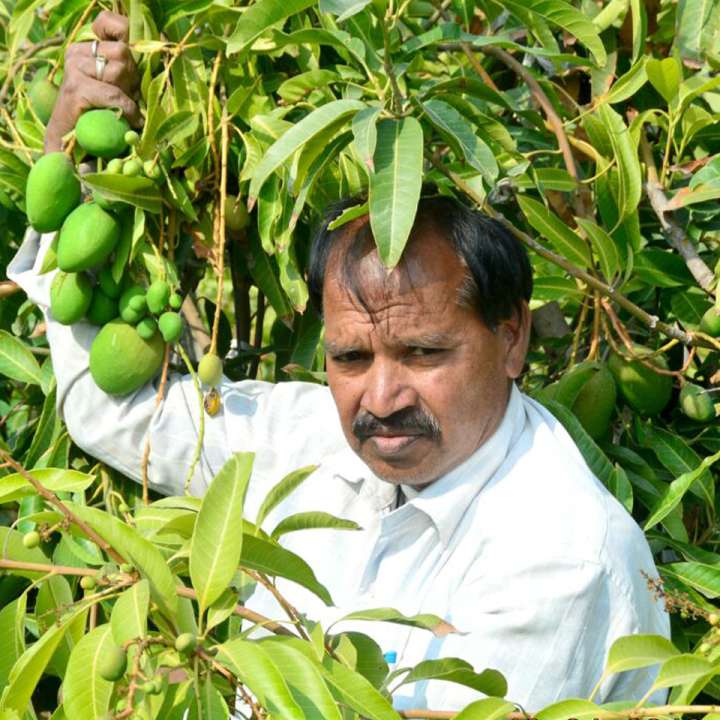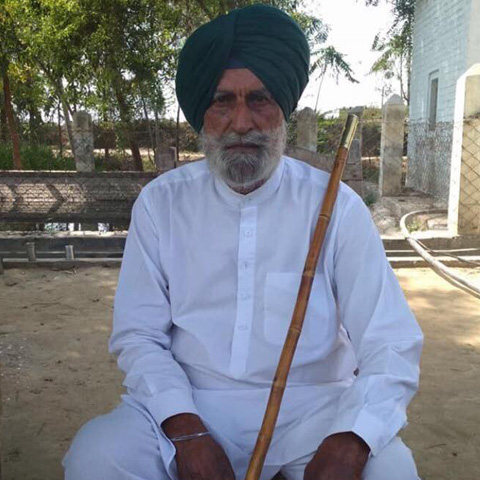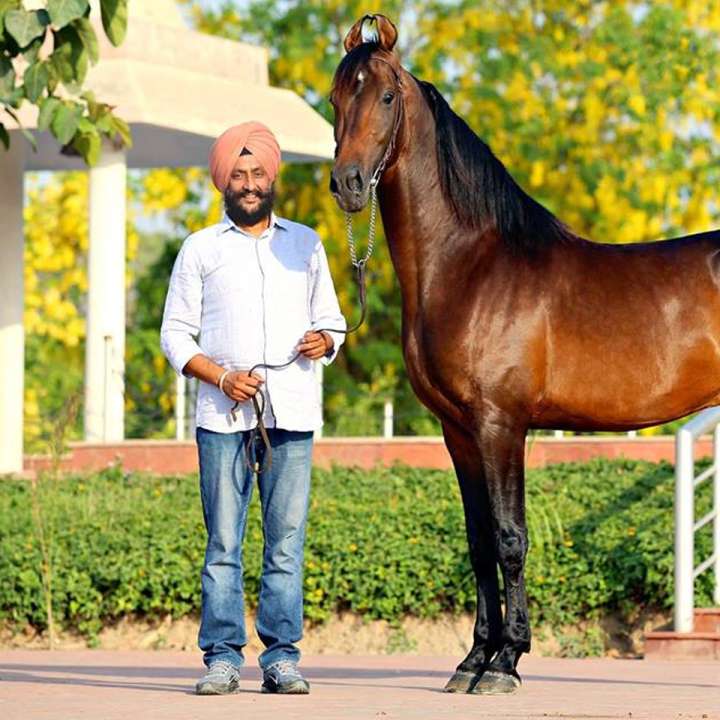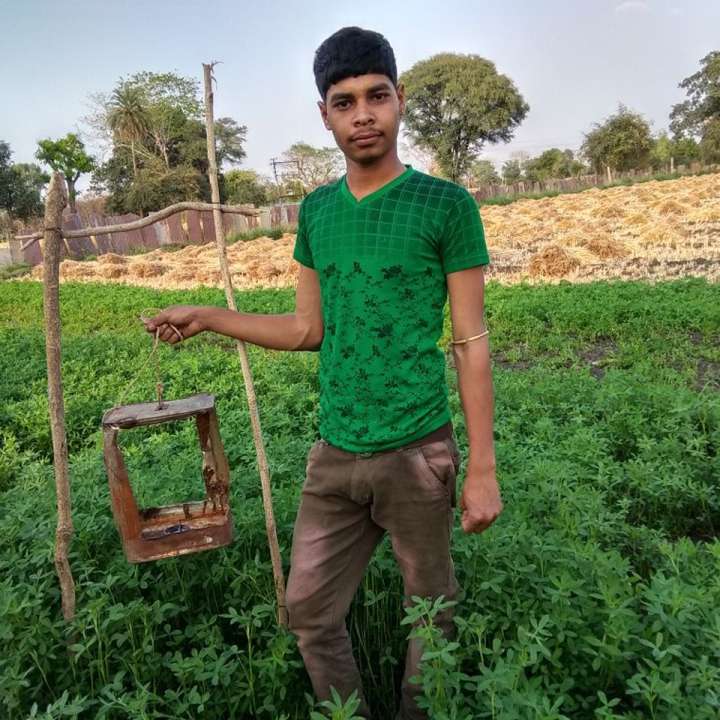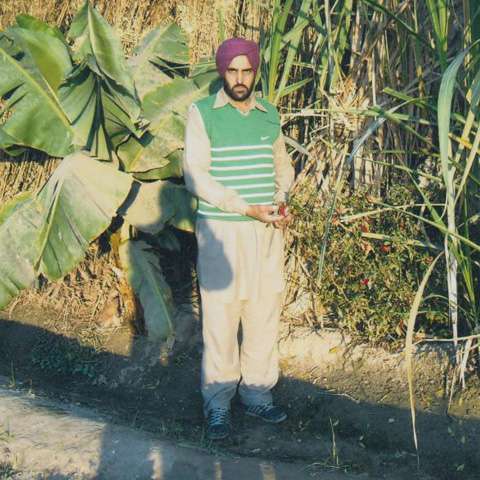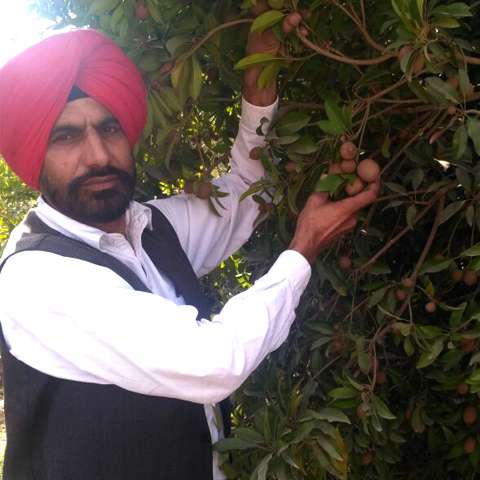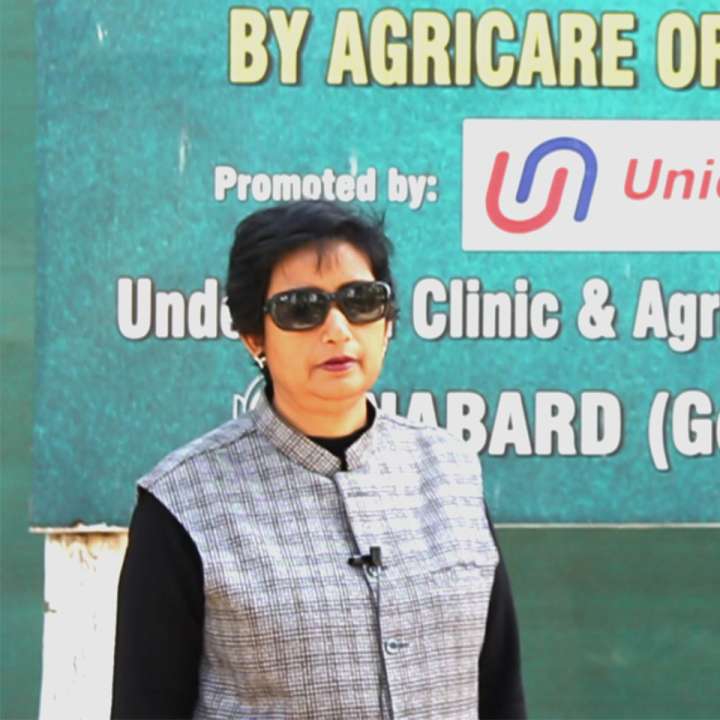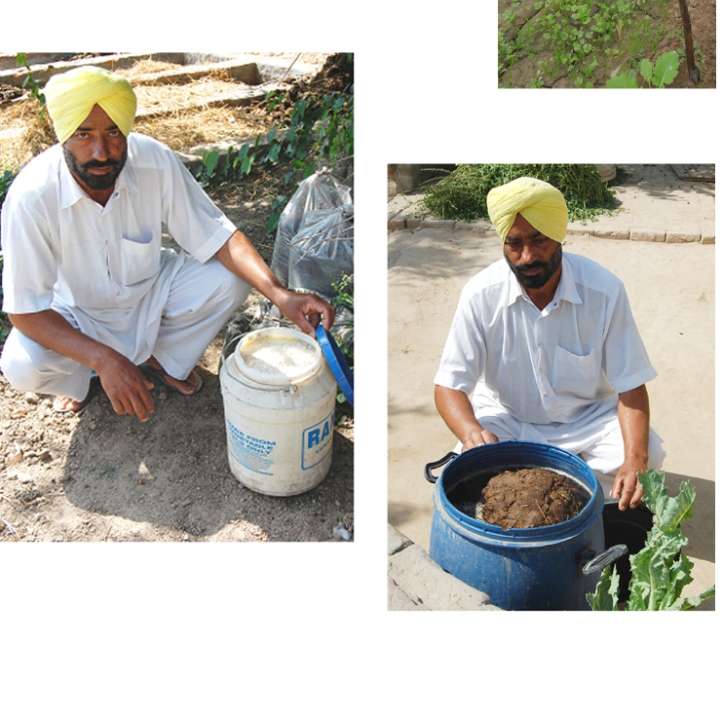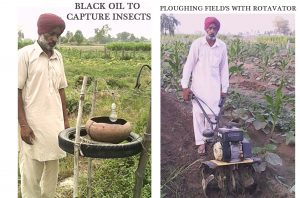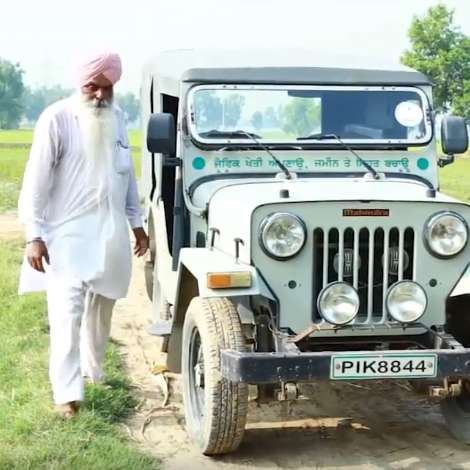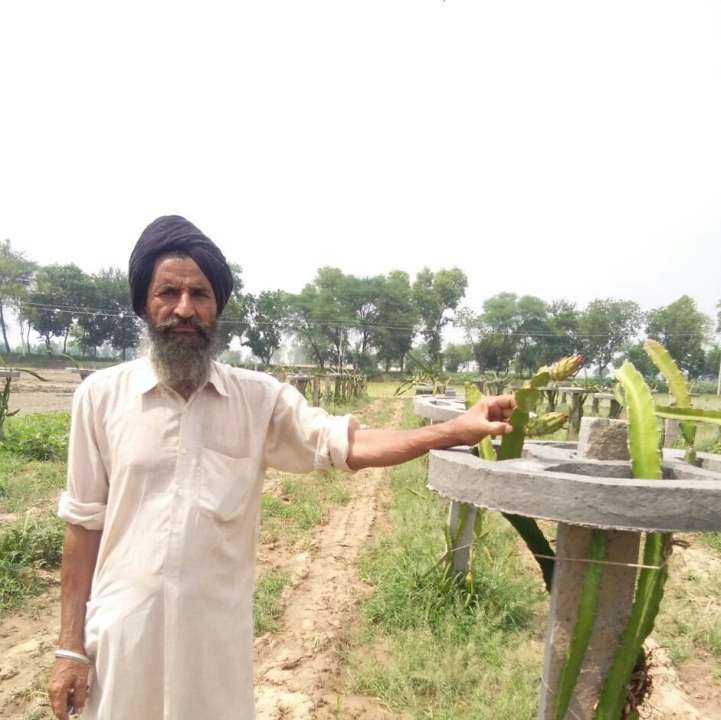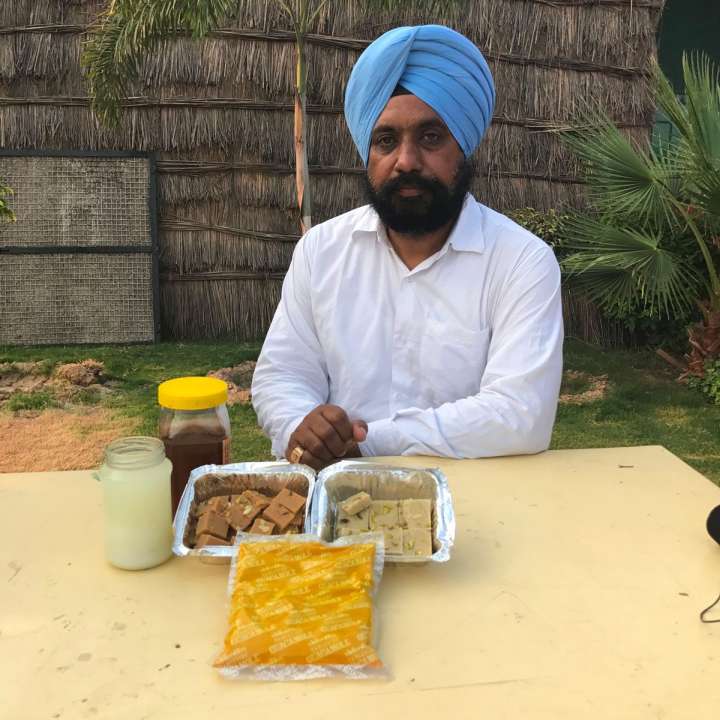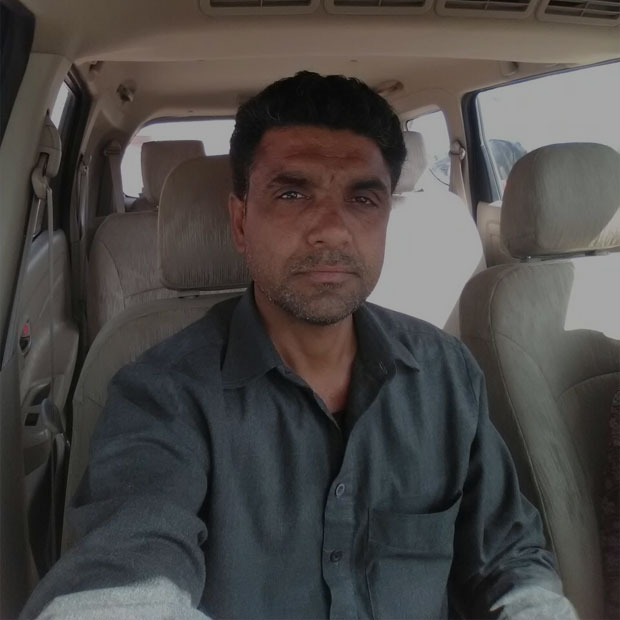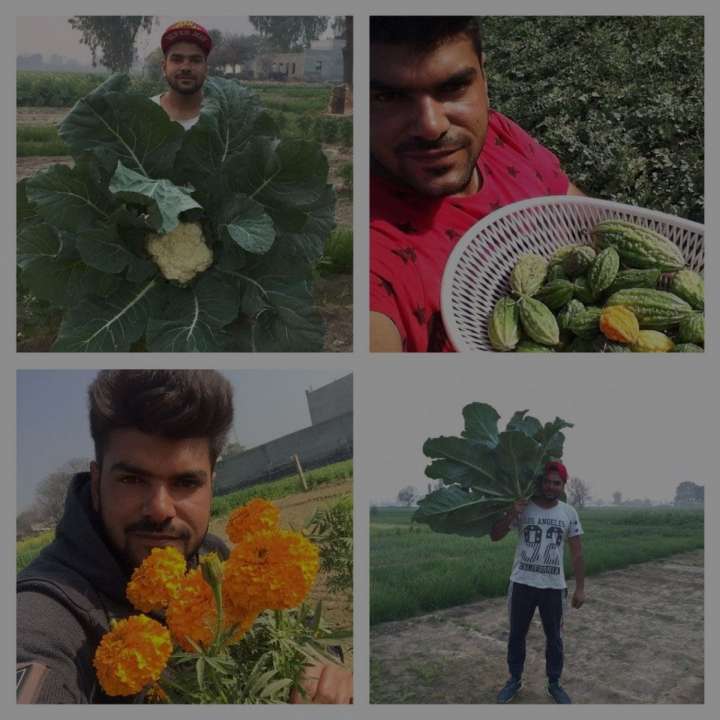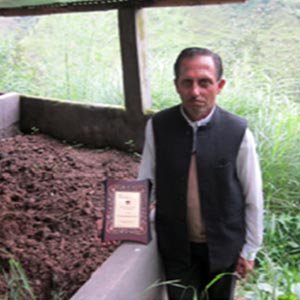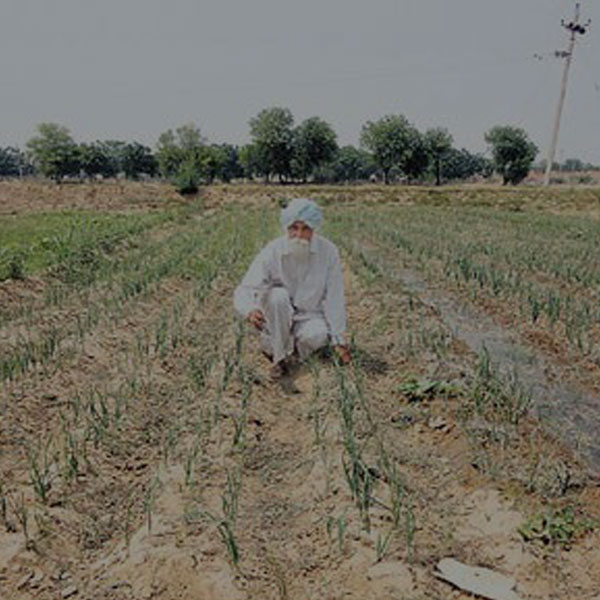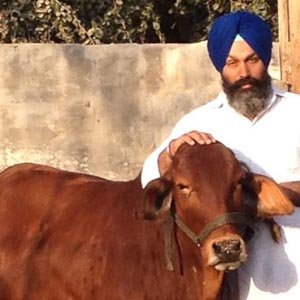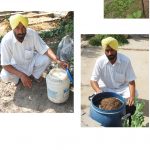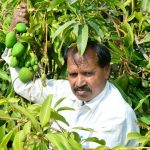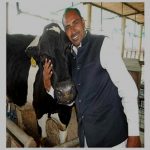Rajasthan Based Farmer Developed a New Mango Variety through Grafting Which Is Available In All the Seasons
When it comes to fruits then there would be hardly any person who doesn’t like mangoes. So this is the story of a Rajasthan based farmer – Kishan Suman, 52, who discovered a new variety of mango – Sadabahar, which is available in all the seasons. Well, this is a good news for all those fruit lovers who crave for the mangoes even in the off-season.
After completing his education, in 1995, Kishan Suman followed the footsteps of his father and started farming at his ancestral farm. In the beginning, he ventured in the agriculture field with cereals and grains, but for him, it was loss-making crops due to price exploitation from the merchants and impulsive weather. Therefore, Kishan Suman shifted to Jasmine cultivation. Besides this, having a crave to learn something different, made Kishan Suman learn about the grafting method in the rose plant from which he cultivated different coloured roses from the same plant. Well experimenting with the rose plant just boosted up the confidence of Kishan Suman and the next plant was mango on which grafting was performed.
The reason behind Kishan Suman choosing mango for grafting procedure was that usually mango fruit is only available in 2-3 months and he wanted it to be available in all the season so that the mango lovers can relish it when they want.
In 2000, Kishan Suman observed a mango tree with good growth trend and dark green coloured leaves in his orchard, so with consistent efforts of 15 years in Mango grafting, Kishan Suman finally created a new variety of dwarf mango and named it Sadabahar, which starts yielding fruit in just two years. Because of dwarf characteristics, Sadabahar mango variety is ideal for high-density farming and ultra-high density farming technique.
“I have put my full determination and efforts to develop this mango variety – Sadabahar. Although the plant starts giving fruit in the second year, it is recommended to let the plant grow till four years properly to enable it to gain proper strength. Moreover, Sadabahar is a disease resistant variety and is also unaffected by the climatic changes. After four years fruit can be harvested but till then let the plant grow well.” – Said, Kishan Suman
• Pulp has very less fibre
Presently, Kishan Suman has 22 mother plants and 300 grafted mango plants in his orchards. With the assistance of National Innovation Foundation, Mr. Kishan is selling the grafts and plants of Sadabahar Variety. Many farmers have visited his farm from Chhattisgarh, Delhi and Haryana region to buy his developed variety and have also appreciated him after seeing the results. Even the saplings of Sadabahar are also planted in the Mughal Gardens of Rashtrapati Bhavan.
For all his efforts and innovation in developing a mango variety that can yield fruit throughout the year, he has been awarded in 9th National Grassroots Innovation and Outstanding Traditional Knowledge award function.
Although Sadabahar is resistant to all the major diseases still Kishan Suman believes that prevention is better than cure and that’s why he prepares natural pesticides from neem fruit, crown flower, and cow urine, it provides excellent protection to the plant from any kind of diseases and pest.
In future Kishan Suman is planning to experiment on Jack-fruit, as it takes longer to yield fruit so Kishan Suman is planning to reduce that time.
“Horticulture is a very interesting field and farmers have various opportunities to experiment with their creativity on different plants and earn good profit.”

